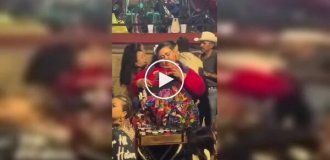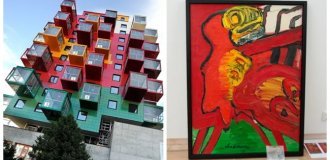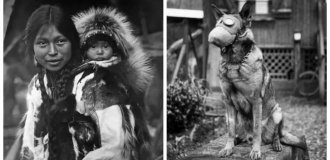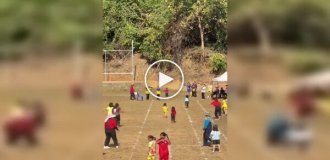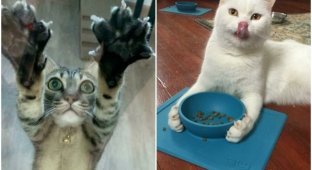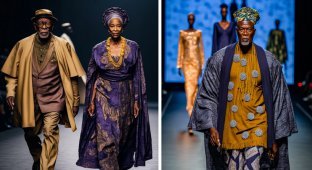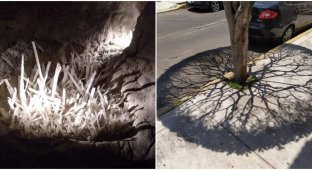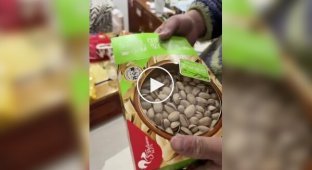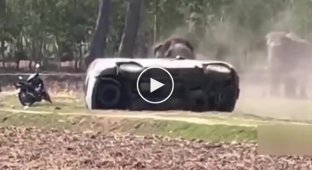Musang: the most expensive coffee in the world is made from his excrement (9 photos)
Sometimes even the most simple thing can become a superhero act. For example, a musang just needs to have lunch to help forests recover from deforestation and disasters. But their special abilities turned into a curse. Some people learned to exploit these animals and became very rich. 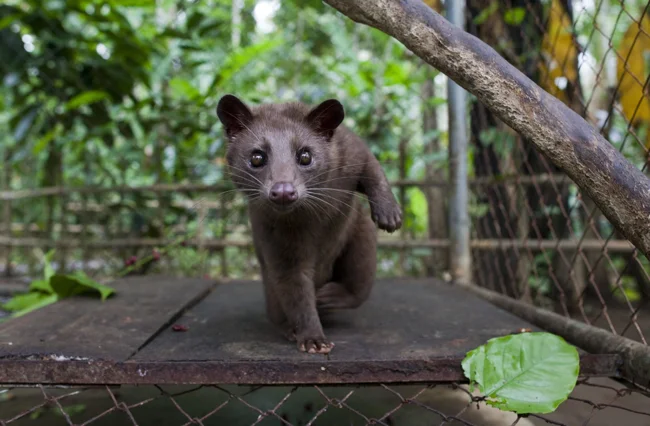
Wait, wait... Is this a superhero landing?
If you meet a musang during the day, you will never recognize it as a savior of the jungle. A tiny animal the size of a cat, upon seeing strangers, quickly hides in a shelter: higher in the trees or deeper in a hollow. But at night, the musang creates a completely different impression. The graceful animal glides with equal ease both on the ground and in the trees in the forests of Southeast Asia. 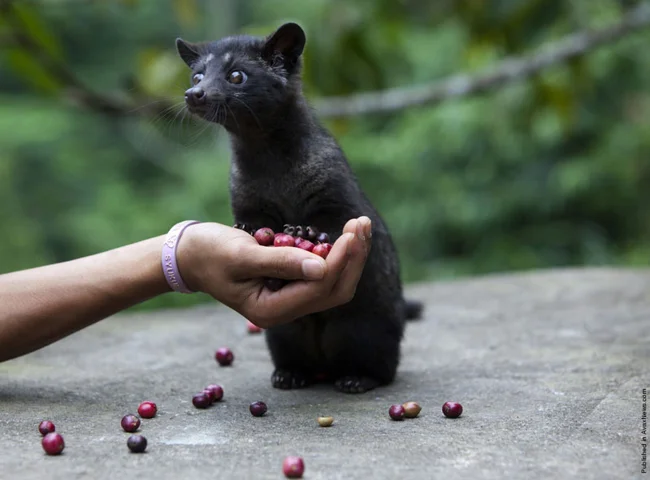
This is all we can pay for your efforts!
He needs to hurry: the night is short, and there are many tasks. First of all, the animal updates information about neighbors. Musangs, like true professionals, work alone. But they always maintain contact with their relatives using a universal communication technology - tags. By smell, the animal determines the sex and age, distinguishes a familiar neighbor from a stranger. And if a predator appears in front of the musang, the enemy will receive a charge of invigorating aroma from the anal glands right in the face. 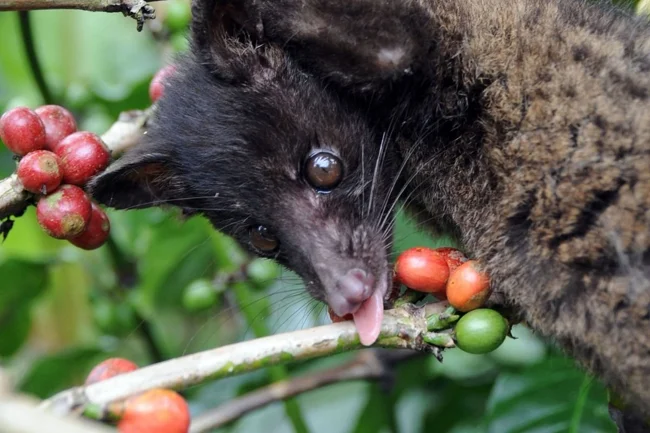
Don't peek, I'm busy here!
When the territory has been surveyed, it's time for heroic deeds: the musang goes to eat! Despite the fact that the musang belongs to the suborder of felines, it is omnivorous. It will gobble up a lizard, snack on testicles, and treat itself to fresh fruit. The latter is its love. The animal skillfully selects the ripest fruits from more than 20 plant species! It is after eating them that the magic happens. 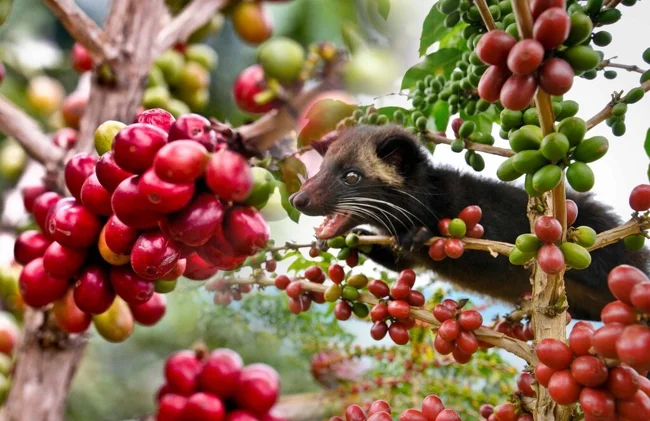
This is probably what a musang paradise looks like.
The musang's gastrointestinal tract easily digests the pulp of the fruit, but it has a hard time with the dense seeds. A few hours after the meal, they come out of the back of the musang, kilometers from the parent plant. The survival rate and growth rate of such seeds is much higher. And not only because of natural fertilization. Gastric juices and special bacteria dissolve the multi-layered protective shell of the seed. This improves germination and growth rate. The young sprout does not need to waste energy on breaking through the strong armor. This process also has a side effect: the taste of the seeds changes. 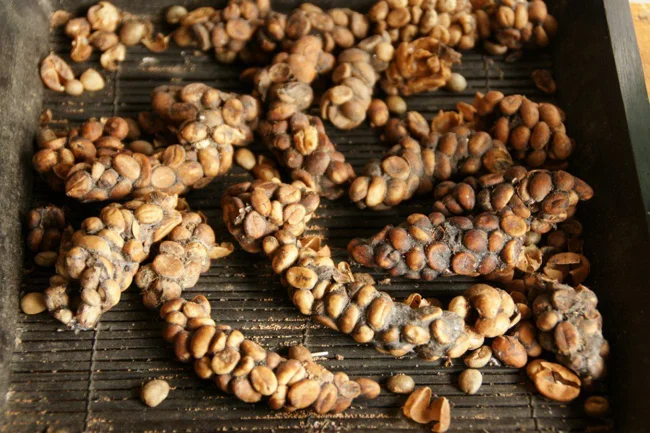
So that's the secret ingredient in Snickers...
People found out about this when they tried to make coffee from slightly overcooked coffee beans - not from a good life, of course. Naturally, they did not chase musangs and their poop through the jungle back then. In many countries of Southeast Asia, the animals were and are kept as pets. The fluffy creatures are tolerant of humans and help around the house: they catch rodents, poison poisonous snakes. 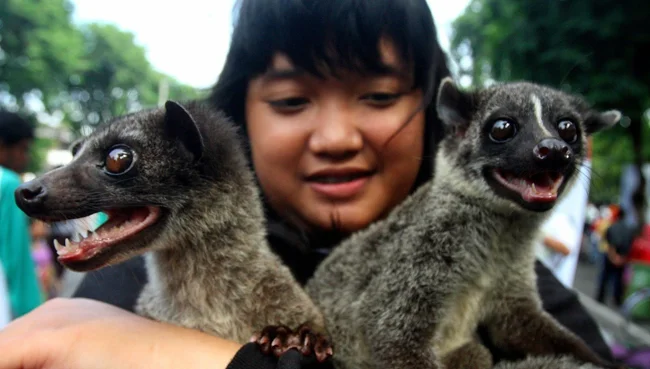
It is believed that the musang occupies a niche that is occupied in America by raccoons. They are just as omnivorous, just as cunning, and just as easily get used to humans.
And when the first owner of the musang decided to brew a drink with a stink, the animal's life was divided into "before" and "after". It turned out that after traveling through the animal's gastrointestinal tract, the beans lose their coffee bitterness, and in return receive unusual flavors. Cunning traders quickly realized that they could make money on such a product. They called the coffee of dubious origin "Kopi Luwak" and began to sell it for an incredible amount: 350 - 500 dollars per kilo! This is the most expensive coffee in the world! 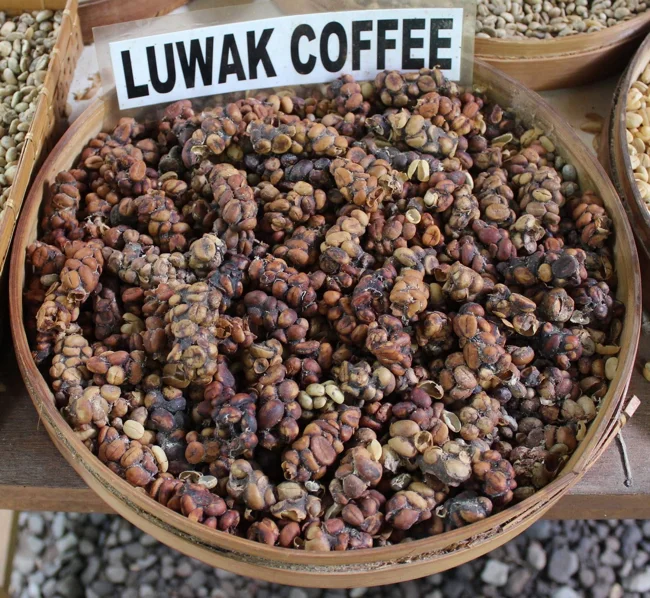
They say that on plantations you can get a cup of coffee for "only" 3-5 dollars.
Despite the huge cost, the demand for the product is many times greater than the supply. In natural conditions, it is possible to obtain only 200-300 kilograms of the product per year, which categorically does not suit the sellers. Therefore, recently, kopi luwak farms have appeared in Asia. And these places, frankly speaking, are joyless. Wild and very territorial animals are kept in tiny cages and feed exclusively on coffee beans of dubious quality. Of course, animal rights activists and the public in general have paid attention to such cruel farms. The media has repeatedly raised the issue of banning such production. A big scandal and conflict of interests has arisen. 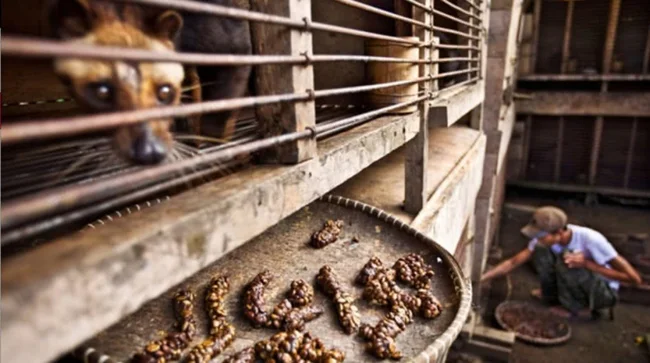
Naturally, there is no point in dreaming about normal conditions on such farms. The animals are locked in iron cages for life.
But scientists are looking for a way out: how to help the animals and not upset gourmets. And they found the best solution! They isolated a culture of bacteria that live in the stomach of the musang - Bacillus subtilis. It is this that gives the delicate taste that coffee lovers appreciate so much. 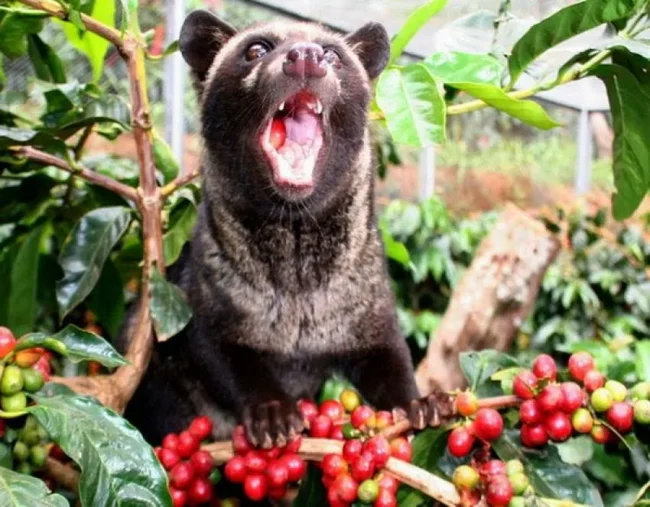
Hooray! Finally, I won't have to work!
During the experiment, the coffee was fermented in a starter culture of microorganisms for two days. According to the results of a blind test, the drink from the processed beans turned out to be better than the usual one! Moreover, scientists want to “pump up” the bacteria so that it not only removes bitterness, but also adds new flavors.
